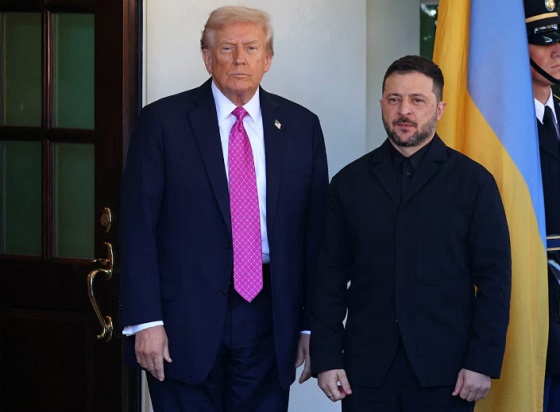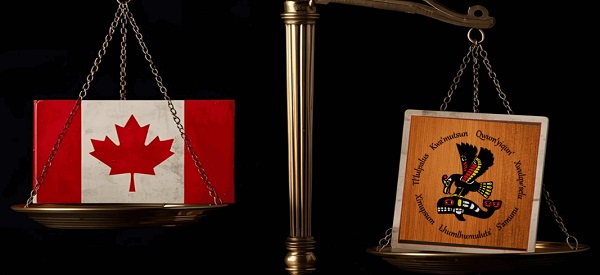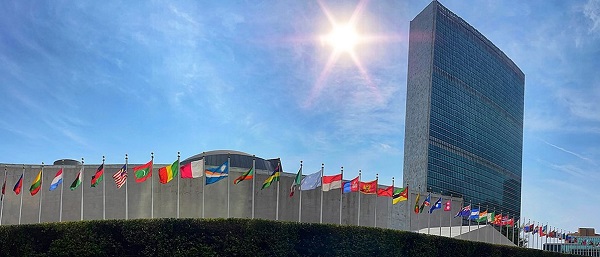Uncategorized
Turkish official: Police found evidence of Khashoggi slaying

ISTANBUL — Police searching the Saudi Consulate found evidence that Saudi writer Jamal Khashoggi was killed there, a high-level Turkish official said Tuesday, and authorities appeared ready to also search the nearby residence of the consul general after the diplomat left the country.
The comment by the Turkish official to The Associated Press intensified pressure on Saudi Arabia to explain what happened to Khashoggi, who vanished Oct. 2 while visiting the consulate to pick up paperwork he need to get married.
President Donald Trump said after a phone call with Crown Prince Mohammed bin Salman that he “totally denied any knowledge of what took place in their Turkish Consulate.”
The crown prince “told me that he has already started, and will rapidly expand, a full and complete investigation into this matter. Answers will be forthcoming shortly,” Trump said in a tweet.
U.S. Secretary of State Mike Pompeo
While it was all smiles and handshakes in Riyadh, one prominent Republican senator said he believed that the crown prince, widely known as MBS, had Khashoggi “murdered.”
“This guy has got to go,” said Sen. Lindsey Graham, R-South Carolina, speaking on Fox television. “Saudi Arabia, if you’re listening, there are a lot of good people you can choose, but MBS has tainted your country and tainted himself.”
Saudi officials have called Turkish allegations that a team of 15 Saudi agents killed Khashoggi “baseless,” but U.S. media reports suggested that the kingdom may acknowledge the writer was killed at the consulate, perhaps as part of a botched interrogation.
The close U.S. ally is ruled entirely by the Al Saud monarchy, and all major decisions in the ultraconservative kingdom are made by the royal family.
Washington Post Publisher and CEO Fred Ryan said the Saudi government “owes the Khashoggi family and the world a full and honest explanation of everything that happened to him,” noting that Tuesday marked two weeks since the disappearance of the 59-year-old journalist.
“The Saudi government can no longer remain silent, and it is essential that our own government and others push harder for the truth,” Ryan added.
The high-level Turkish official told the AP that police found “certain evidence” of Khashoggi’s slaying at the consulate, without elaborating. The official spoke on condition of anonymity because the investigation was ongoing.
Police planned a second search at the Saudi consul general’s home, as well as some of the country’s diplomatic vehicles, Turkey’s Foreign Minister Mevlut Cavusoglu said. Leaked surveillance video show diplomatic cars
Consul General Mohammed al-Otaibi left Turkey Tuesday afternoon, state media reported, just as police began putting up barricades around his official residence. Saudi Arabia did not immediately acknowledge he had left or offer a reason for his departure.
Earlier in the day, U.N. human rights chief Michelle Bachelet said the “inviolability or immunity” of people or premises granted under the 1963 Vienna Convention on Consular Relations “should be waived immediately.” That convention covers diplomatic immunity, as well as the idea that embassies and consulates sit on foreign soil in their host countries.
“Given there seems to be clear evidence that Mr. Khashoggi entered the consulate and has never been seen since, the onus is on the Saudi authorities to reveal what happened to him,” Bachelet said.
Turkey had wanted to search the consulate for days. Permission apparently came after a late Sunday night call between King Salman and Turkish President Recep Tayyip Erdogan. Certain areas of the consulate were to remain off-limits, although officials would be able to inspect surveillance cameras, Turkish media reported.
Erdogan told journalists Tuesday that police sought traces of “toxic” materials and suggested parts of the consulate had been recently painted, without elaborating.
In Riyadh, Saudi Foreign Minister Adel al-Jubeir greeted Pompeo at the airport. The former CIA chief didn’t make any remarks to the media.
Soon after, Pompeo arrived at a royal palace, where he thanked King Salman “for accepting my visit on behalf of President Trump” before the two went into a closed-door meeting. Pompeo then met a smiling Prince Mohammed, the heir apparent to the throne of the world’s largest oil exporter.
“We are strong and old allies,” the prince told Pompeo. “We face our challenges together — the past, the day of, tomorrow.”
Pompeo was to have a dinner Tuesday night with Prince Mohammed and was expected to fly to Turkey on Wednesday.
Trump previously warned of “severe punishment” for the kingdom if it was found to be involved in Khashoggi’s disappearance, which has spooked investors.
Trump’s warning drew an angry response Sunday from Saudi Arabia and its state-linked media, including a suggestion that Riyadh could wield its oil production as a weapon. The U.S. president has been after King Salman and OPEC to boost production to drive down high oil prices, caused in part by the coming re-imposition of oil sanctions on Iran.
On Monday, however, Trump offered a different theory after speaking by telephone with King Salman.
“It sounded to me like maybe these could have been rogue killers,” Trump said. “I mean, who knows? We’re going to try getting to the bottom of it very soon, but his was a flat denial.”
The New York Times and the Washington Post have reported, citing anonymous sources, that Saudi officials may soon acknowledge Khashoggi’s slaying at the consulate but blame it on a botched intelligence operation.
That could, like Trump’s comments, seek to give the kingdom a way out of the global firestorm of criticism over Khashoggi’s fate.
“The effort behind the scenes is focused on avoiding a diplomatic crisis between the two countries and has succeeded in finding a pathway to deescalate tensions,” said Ayham Kamel, the head of the Eurasia Group’s Mideast and North Africa division.
“Riyadh will have to provide some explanation of the journalist’s disappearance, but in a manner that distances the leadership from any claim that a decision was made at senior levels to assassinate the prominent journalist.”
Nils Melzer, the U.N. special investigator on torture, said that if Turkey and Saudi Arabia can’t conduct “a credible and objective investigation,” then international involvement may be needed.
“We should give the involved states time, and under proper scrutiny, to come to a conclusion that they want to address this problem,” Melzer told a news conference at U.N. headquarters.
But if at a later stage “we can see that one of the involved states does not
___
Fraser reported from Ankara, Turkey, and Gambrell from Dubai, United Arab Emirates. Associated Press writers Jamey Keaten in Geneva and Jill Colvin and Matthew Pennington in Washington contributed to this report.
Fay Abuelgasim, Suzan Fraser And Jon Gambrell, The Associated Press
Uncategorized
CNN’s Shock Climate Polling Data Reinforces Trump’s Energy Agenda


From the Daily Caller News Foundation
As the Trump administration and Republican-controlled Congress move aggressively to roll back the climate alarm-driven energy policies of the Biden presidency, proponents of climate change theory have ramped up their scare tactics in hopes of shifting public opinion in their favor.
But CNN’s energetic polling analyst, the irrepressible Harry Enten, says those tactics aren’t working. Indeed, Enten points out the climate alarm messaging which has permeated every nook and cranny of American society for at least 25 years now has failed to move the public opinion needle even a smidgen since 2000.
Appearing on the cable channel’s “CNN News Central” program with host John Berman Thursday, Enten cited polling data showing that just 40% of U.S. citizens are “afraid” of climate change. That is the same percentage who gave a similar answer in 2000.
Dear Readers:
As a nonprofit, we are dependent on the generosity of our readers.
Please consider making a small donation of any amount here.
Thank you!
Enten’s own report is an example of this fealty. Saying the findings “kind of boggles the mind,” Enten emphasized the fact that, despite all the media hysteria that takes place in the wake of any weather disaster or wildfire, an even lower percentage of Americans are concerned such events might impact them personally.
“In 2006, it was 38%,” Enten says of the percentage who are even “sometimes worried” about being hit by a natural disaster, and adds, “Look at where we are now in 2025. It’s 32%, 38% to 32%. The number’s actually gone down.”
In terms of all adults who worry that a major disaster might hit their own hometown, Enten notes that just 17% admit to such a concern. Even among Democrats, whose party has been the major proponent of climate alarm theory in the U.S., the percentage is a paltry 27%.
While Enten and Berman both appear to be shocked by these findings, they really aren’t surprising. Enten himself notes that climate concerns have never been a driving issue in electoral politics in his conclusion, when Berman points out, “People might think it’s an issue, but clearly not a driving issue when people go to the polls.”
“That’s exactly right,” Enten says, adding, “They may worry about in the abstract, but when it comes to their own lives, they don’t worry.”
This reality of public opinion is a major reason why President Donald Trump and his key cabinet officials have felt free to mount their aggressive push to end any remaining notion that a government-subsidized ‘energy transition’ from oil, gas, and coal to renewables and electric vehicles is happening in the U.S. It is also a big reason why congressional Republicans included language in the One Big Beautiful Bill Act to phase out subsidies for those alternative energy technologies.
It is key to understand that the administration’s reprioritization of energy and climate policies goes well beyond just rolling back the Biden policies. EPA Administrator Lee Zeldin is working on plans to revoke the 2010 endangerment finding related to greenhouse gases which served as the foundation for most of the Obama climate agenda as well.
If that plan can survive the inevitable court challenges, then Trump’s ambitions will only accelerate. Last year’s elimination of the Chevron Deference by the Supreme Court increases the chances of that happening. Ultimately, by the end of 2028, it will be almost as if the Obama and Biden presidencies never happened.
The reality here is that, with such a low percentage of voters expressing concerns about any of this, Trump and congressional Republicans will pay little or no political price for moving in this direction. Thus, unless the polls change radically, the policy direction will remain the same.
David Blackmon is an energy writer and consultant based in Texas. He spent 40 years in the oil and gas business, where he specialized in public policy and communications.
Uncategorized
Kananaskis G7 meeting the right setting for U.S. and Canada to reassert energy ties


Energy security, resilience and affordability have long been protected by a continentally integrated energy sector.
The G7 summit in Kananaskis, Alberta, offers a key platform to reassert how North American energy cooperation has made the U.S. and Canada stronger, according to a joint statement from The Heritage Foundation, the foremost American conservative think tank, and MEI, a pan-Canadian research and educational policy organization.
“Energy cooperation between Canada, Mexico and the United States is vital for the Western World’s energy security,” says Diana Furchtgott-Roth, director of the Center for Energy, Climate and Environment and the Herbert and Joyce Morgan Fellow at the Heritage Foundation, and one of America’s most prominent energy experts. “Both President Trump and Prime Minister Carney share energy as a key priority for their respective administrations.
She added, “The G7 should embrace energy abundance by cooperating and committing to a rapid expansion of energy infrastructure. Members should commit to streamlined permitting, including a one-stop shop permitting and environmental review process, to unleash the capital investment necessary to make energy abundance a reality.”
North America’s energy industry is continentally integrated, benefitting from a blend of U.S. light crude oil and Mexican and Canadian heavy crude oil that keeps the continent’s refineries running smoothly.
Each day, Canada exports 2.8 million barrels of oil to the United States.
These get refined into gasoline, diesel and other higher value-added products that furnish the U.S. market with reliable and affordable energy, as well as exported to other countries, including some 780,000 barrels per day of finished products that get exported to Canada and 1.08 million barrels per day to Mexico.
A similar situation occurs with natural gas, where Canada ships 8.7 billion cubic feet of natural gas per day to the United States through a continental network of pipelines.
This gets consumed by U.S. households, as well as transformed into liquefied natural gas products, of which the United States exports 11.5 billion cubic feet per day, mostly from ports in Louisiana, Texas and Maryland.
“The abundance and complementarity of Canada and the United States’ energy resources have made both nations more prosperous and more secure in their supply,” says Daniel Dufort, president and CEO of the MEI. “Both countries stand to reduce dependence on Chinese and Russian energy by expanding their pipeline networks – the United States to the East and Canada to the West – to supply their European and Asian allies in an increasingly turbulent world.”
Under this scenario, Europe would buy more high-value light oil from the U.S., whose domestic needs would be back-stopped by lower-priced heavy oil imports from Canada, whereas Asia would consume more LNG from Canada, diminishing China and Russia’s economic and strategic leverage over it.
* * *
The MEI is an independent public policy think tank with offices in Montreal, Ottawa, and Calgary. Through its publications, media appearances, and advisory services to policymakers, the MEI stimulates public policy debate and reforms based on sound economics and entrepreneurship.
As the nation’s largest, most broadly supported conservative research and educational institution, The Heritage Foundation has been leading the American conservative movement since our founding in 1973. The Heritage Foundation reaches more than 10 million members, advocates, and concerned Americans every day with information on critical issues facing America.
-

 Business2 days ago
Business2 days agoFord’s Whisky War
-

 Agriculture15 hours ago
Agriculture15 hours agoIs the CFIA a Rogue Agency or Just Taking Orders from a Rogue Federal Government?
-

 Focal Points2 days ago
Focal Points2 days agoTrump Walks Back His Tomahawk Tease from Zelensky
-

 Automotive2 days ago
Automotive2 days ago$15 Billion, Zero Assurances: Stellantis Abandons Brampton as Trudeau-Era Green Deal Collapses
-

 Business1 day ago
Business1 day agoTrump Blocks UN’s Back Door Carbon Tax
-

 Business24 hours ago
Business24 hours agoJudges are Remaking Constitutional Law, Not Applying it – and Canadians’ Property Rights are Part of the Collateral Damage
-

 Red Deer23 hours ago
Red Deer23 hours agoYour last minute election prep: Common Sense Red Deer talks to the candidates
-

 Business1 day ago
Business1 day agoTrump Admin Blows Up UN ‘Global Green New Scam’ Tax Push, Forcing Pullback






